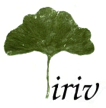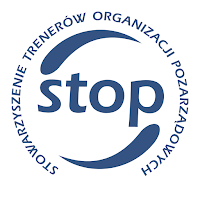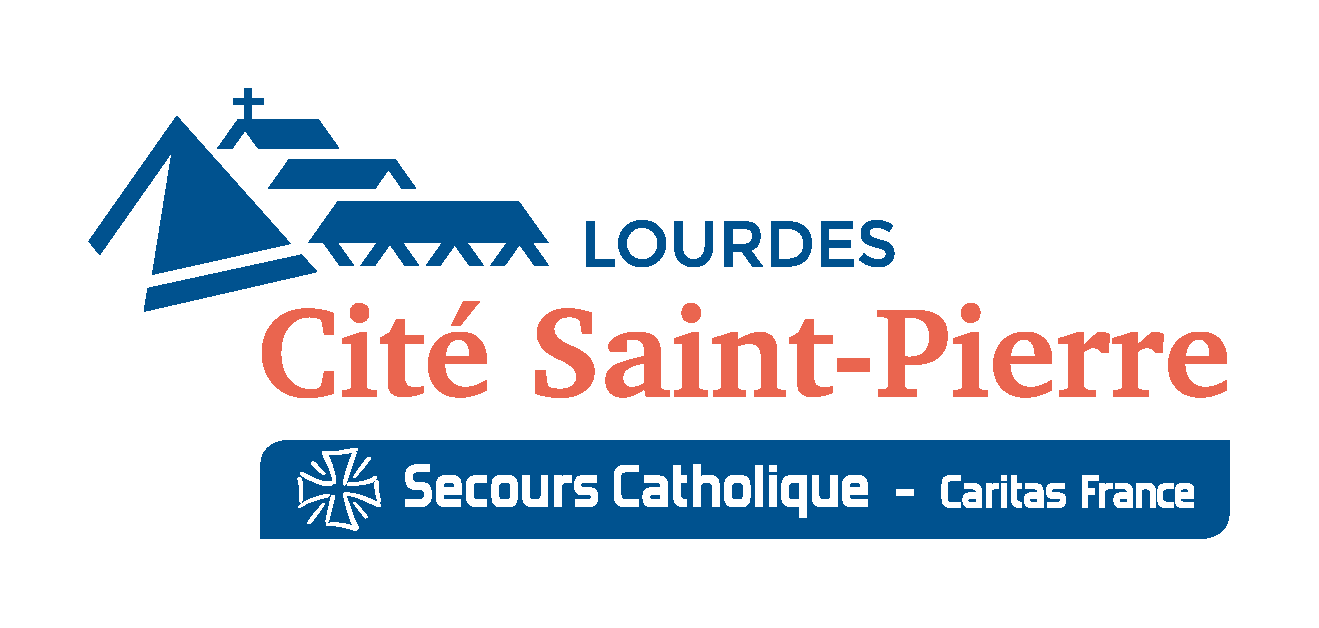 The DiverPass gathers 4 EU countries -
The DiverPass gathers 4 EU countries - Diverpass
European team
 The DiverPass gathers 4 EU countries -
The DiverPass gathers 4 EU countries - Gonzague AMYOT d’INVILLE Head of Cité Saint Pierre graduated from the Institute of social work of Pau in the direction of social intervention establishment. Since January 2013, he has been the director of Cité Saint-Pierre in Lourdes. He had studied in health sector and was a teacher, for ten years, in higher education in Nantes before he joined Caritas France in 2012. He is managing a structure that hosts more than 20,000 people in need from all around the world. A team of 30 employees helps the 1,300 volunteers to run the activities of accommodation and animation. For several years, he has developped a partnership with the migrant association to welcome and integrate them in volunteer activities. In 2017, He was associated in an Erasmus Project (JuCiVol) to the testing of a training for youngsters with a NEET profile together with a mentoring for professionals meant to explain them how to identify a voluntary experience and to express it in terms of competences to help them in their transition to the labour market.
Benoit ARNAUD, responsible for the Animation-Booking- Volunteering department of Cité Saint-Pierre. As a social worker, he has an experience of international cooperation in New York City (NYC), in the district of the Bronx, in an organization (Abraham House) sugegsting an alternative to incarceration He implemented various programs, including after-school program and a family program with a migrant Hispanic speaking audience ; he led the “Alternative to incarceration” program. In 2008, he obtained a Master in local and international social program development and joined an association for people with mental disabilities (Arche) coordinating personalized projects and hosting 40 people, as well as the management of 20 employees and European volunteers. A participative and inclusive model combining professional, community and spiritual dimensions was followed . In 2016, he joined the management team of Cité Saint-Pierre by taking responsibility for the Animation-Booking-Volunteering departmentKey experts
Bénédicte HALBA, a doctor in Economics (University of Paris I Pantheon Sorbonne) , is the founding President of the Institute for Research and Information on Volunteering (iriv), director of iriv Conseil since 2000. She worked for the Ministry for Youth and Sports (1991- 1994) as coordinator for a study on the economic impact of sport in 12 European countries. She was an expert for the Council of Europe at the workshops "Economic impact of sport" and "Volunteering" (1992 -1994). In 1997, she created iriv to improve knowledge and practice within the non-profit sector. She runs iriv Conseil as responsible for the studies , the training programmes and the designing of the websites and editing of the publications. She has been a lecturer at the University since 2000 in Europe (France, Austria, UK). She was an administrator of the Cicos (2007-2011) and the Assfam (2011-2014). She is a member of the scientific committee of the Swiss Foundation ECAP since 2015 and a member of the Committee associations for the regional body gathering expert accountants (in Ile de France). She has written several books and numerous articles in the fied of Volunteering, Economics of Sport and Lifelong Learning.
Nakany Traore holds a master's degree in international law from the University of Paris I Panthéon Sorbonne and a master's degree in public law from the University of Paris VIII Vincennes Saint-Denis. She did a first internship at Avens Lehman & Associés, specializing in business law, she then completed a second internship at AZM Design & Build, a technical design office. In December 2020, she was a legal writer at the Directorate of Migration and Integration of the Prefecture of Seine-Saint-Denis (Ile de France). For the DiverPass, Nakany has contributed to the ebook and to the network of stakeholders in France.
Camille Salèse is a preparatory class graduate in humanities and social sciences and a Bachelor of Information and Communication student at Censier (University Paris III- Sorbonne Nouvelle). In 2021, she volunteered for the Terre solidaire association, as an assistant to the network communications manager. Since 2017, she has been giving French lessons to a young English speaker during her travels in Ireland. In high school, she participated in the monthly publication of the Journal of High School Life, which allowed her to discover her vocation for the media and information. For the DiverPass, Camille has contributed to the network of stakeholders in France.
Camilla BISTRUSSU is graduate in “Organizational Psychology Sciences: Human Resources, Marketing and Communication” at the Università Cattolica del Sacro Cuore of Milan (Italy) with a thesis on a case study in the Italian firm Coesia, which stresses the importance of having a well-structured induction process in the era of change, diversity and interculturality. In 2017, she obtained a Bachelor's Degree in Psychological Sciences at Università Cattolica del Sacro Cuore, Milan (Italy). Among Iriv Conseil, Camilla is involved in different European projects combining a French and European implementation tackling the issue of diversity (learning, learners and environments). For the DiverPass project, she is involved in the testing of the design guidance for professionals to support migrants at the Cité des Métiers.
Béatrice Gérard Duprey is an occupational psychologist graduated from the National Conservatory of Arts and Crafts (CNAM, 2017) and Psychotherapist (ARS qualification from the Ecole Pratique des Hautes Etudes en Psychopathologies, 2018). She participated in working groups on practical cases at the Psychoanalytic School of Sainte Anne (Paris) and at the Henri EY Hospital (2017-2018). She has been working as a psychotherapist in a Medico-Psychological Center (Rabelais, Asnières / Seine, 2018-2019) ; she provided an individual psychotherapy support and contributed to the care of patients during group interviews in collaboration with a multidisciplinary team (psychiatrists, referent nurses, social worker). She co-facilitated a workshop in a day hospital offering a manual activity as a mediation (Asnières / Seine). She practiced as a work psychologist in the Human Resources Department and the medical health service of the Cochin Group (Site Tarnier, Paris, 2018-2019). In complement to her liberal activity, she is associated since January 2020 to the DiVerPass project , including clubs at the Cité des Métiers.
Key experts
Giovanna D’Alessandro is ERIFO’s president and has been a project manager since 2000. She has more than 20 years of experience in the lifelong learning sector in Italy and Europe and an extensive portfolio of project work. For the last five years, she has been leading the Scientific Direction of the research, training and guidance activities of the organisation. She has been responsible for the overall management and financial aspects and procedures of over 30 projects carried out through public funding (Regional, National and European). In ERIFO, she is also delivering training courses in management and pedagogic issues and career-vocational guidance.
Andrea Ranelletti is a Doctor of Philosophy in “Political Studies” at the Sapienza University of Rome, with research on the international processes of regional economic and political integration. He has a relevant expertise in the coordination of European Projects connected to the various forms of school education, adult education and VET. His specific areas of study are “Growth Economics” and “Economics and Management of Innovation”. Andrea Ranelletti has different tutorship and teaching activities in “International Political Economy”, “Growth Economics” and “Economics and Management of Innovation”, at the University of Roma “Sapienza” and the University of Roma “Unitelma Sapienza”.
Lucia Colandrea is a graduate in Arabic and Islamic studies from the University of Naples L’Orientale and also holds a Master's Degree in Human Rights and Conflict Management at the Scuola Superiore Sant’Anna of Pisa. For an internship , she has worked as a field researcher with the IOM Psychosocial support programme for Syrian refugees in Lebanon. She has some experiences as translator/interpreter, L2 Italian language teacher and cultural mediator in emergency reception centres (CAS) and SPRAR centres in Italy, both as a volunteer and a paid staff.
Luisa Nocito is a psychologist, with a specialization in clinical psychology applied to adulthood. Since more than three years she has worked at ERIFO as a specialist job counsellor and as a trainer for job-oriented learning. Since 2011, she has been assistant professor in “Clinical Psychophysiology” at the Sapienza University of Rome, in the Dept. of Dynamic Psychology.
Laura Laurenzi is a Master’s graduate in Economics, with a major in Management of the EU Funds (the Sapienza University of Rome). Since 2018 she has worked as project writer and manager for several public and private bodies, managing and presenting grants in the former H2020 Programme and EIC Pilot. Her field of expertise in the Erasmus+ Programme are: Adult Education, Youth and VET. She is currently a researcher/teacher and project manager at ERIFO, managing the ERIFO’s involvement in the Erasmus Programme.
Giulia Bulzomì graduated in "Training and Development of Human Resources", with a postgraduate master in "Human Resources Management and Industrial Relations" has been carrying out activities as a classroom tutor of training courses in the Health sector (CME credits) since 2013. Since 2019 she has counducted activities as a recruiter for private employment agencies, supporting the user in the job research and the development of a personalized career and training plan. Her field of specialization is matching unemployed migrants with SMEs and private companies interested in their professional profiles. Currently working at ERIFO as a job broker and researcher/trainer for the orientation and human resources development area.
Jovokerek (Budapest, Hungary)
Jövőkerék was established in 2005 to help strengthen European values in Hungary after the EU accession. The main objectives of Jövőkerék are to decrease cultural and economic polarization in society, to support unprivileged groups, to increase consciousness of sustainability and to ameliorate the co-operation of organizations of the non-profit sector. Its main fields of activities are supporting unprivileged groups, especially migrants and Roma people and environmental issues. To achieve its goals, Jövőkerék has been applying for EU, Norwegian and Hungarian Funds and tried to get private sponsors to finance its projects. In the last years, several projects were supported by various Funds.
Key experts
Attila MESZAROS has a degree in social work, has experience working with migrants for more than 25 years. As a migrant himself, he traveled to Hungary from Serbia during the Balkan war, he implemented programs as a professional leader in civil and church organizations and municipal companies: social work, counselling, integration services, labour market programs, mentoring, training, outreach programs, events and campaigns, social films, crisis care: housing, food and medicine, networking, research and policy submissions. Most of the projects were supported by the MMIA, but there were also EU projects in Brussels-funded international cooperation, Norwegian, Dutch and Swiss grants, German church sponsors, Serbian-Hungarian cross-border cooperation programs, UNHCR-supported actions, and private companies like Novartis. He has given lectures on border issues, migration, refugee issues to border guards, NGOs, students, social workers, deacons, pastors. Attila has an experience in public speaking, writing and coordinating EU and domestic projects, planning and directing social services, running social campaigns and fundraising. He has an expertise in cooperation, communication, problem-solving..
Zita GABOR has a relevant experience in working in transnational partnerships, developing and managing EU funded projects, including dividing the tasks and work-package, leading meetings, guiding the transfer-activities and controlling the budget. She has over 20 years of experience, has worked with several organizations from profit-oriented through the local municipality to NGOs. She developed, executed (EIA-AMIF, Erasmus+, Swiss and Norwegian Fund, JUST) and evaluated (Erasmus+, Swiss Fund) EU projects. She has been involved in migrant projects since 2009 in the field of labour market and social integration, entrepreneurial skills development and awareness-raising.Andrea Podina has a degree in social work and has more than 10 years of experience in the field of migration, both in the non-governmental and public sector as well. She has been involved in several AMIF, UNHCR supported and ERASMUS+ programs, where she has performed various tasks, such as implementing and leading housing program for refugees, providing personal psycho-social support and counselling service to families and individuals, organising cultural and leisure activities, promoting integration process and employment, coordinating voluntary work and writing project reports and studies. During her professional work she has gained precious experiences in working and cooperating with other national and international organisations such as the UNHCR, Red Cross, Hungarian Helsinki Commettee, etc. Currently she works as a labour-market consultant with third country nationals at the Maltese Care Nonprofit Ltd.
Zsofi Lenart has 10 years of professional experience in the field of integration. As a social worker she supports the resumption of life of internationally protected persons and third-country nationals living in Hungary in various settings: in a reception centre, as an individual social worker for families and singles. She led community programs for people already living in the capital. She runs a special labour market consultancy for foreigners, and also carries out consultant case work as a labour market consultant. In the office, she supports job seeking for foreigners (internationally protected or other third-country nationals) with an open labour market-focused job searching methods and personal assistance.
The NGO Trainers’ Association (Stowarzyszenie Trenerów Organizacji Pozarządowych) gathers 200 members and works on the quality of the learning process in non-formal education. The most critical area of activity is training new trainers, developing qualifications of the professional ones, and introducing new trends and “other” ways of learning. STOP Trainers’ School is an answer to a strong need expressed by numerous activists of NGOs, entrepreneurs and civil servants to create Polish training called “Training of Trainers” (ToT). It addresses people who plan to actively engage in the development of civil society and work on high quality in learning basis. STOP delivers many activities in the field of youth and adult education, especially in the training of trainers, educators, and facilitators. More information: https://stowarzyszeniestop.pl/about-us
Key experts
Agnieszka BOREK is a sociologist, evaluator and coach with strong research and training expertise. Her research interests are focused on the quality of the process of teaching and learning, evaluation and self-evaluation, educators’ professional development. She is a certified educator and trainer, works with adults and young people. For six years (2010-2015), she was a director of the educational project for 28000 Polish teachers and principals, focused on the whole school development, exploring issues of school self-evaluation, authentic teaching and learning process and data-based decision making. She was a member of the expert's team supporting the establishment standards of education and evaluation in the public education system in Saudi Arabia. She has been involved in several Erasmus + projects which concerned volunteering, preventing ESL, sensitive adults’ group education.
Bartłomiej WALCZAK, a doctor in sociology and cultural anthropologist with over 15 years of experience in social research and adult education. He is, in particular interested in evaluation in education, correlations between migration and education, parental involvement in education, students’ safety, educational change. He authored two, co-authored four other books and published over 60 other scientific publications, both in Polish and international journals. He participated in over 70 research and evaluation projects. He worked as an expert for numerous Polish and international institutions, among others: OECD, OSCE, Public Education Evaluation Commission (Saudi Arabia), the Polish ministry of education and its agencies, local authorities. Between 2009-2015 he was an expert for the Jagiellonian University introducing the reform of pedagogical supervision system in Poland and new learning processes’ requirements for schools. He has been an expert in several Erasmus + projects which concerned volunteering and preventing ESL.







 conseil, Research Institute, (Paris, France)- more
conseil, Research Institute, (Paris, France)- more
